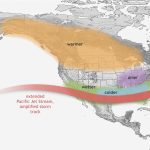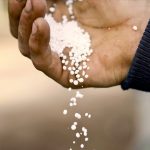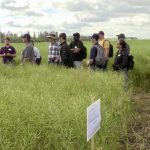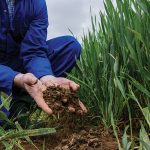
Tag Archives Environment

Wheat Growers take new shot at federal fertilizer policy
The federal government wants a 30 per cent reduction in emissions from fertilizer, but says it is voluntary

Understanding El Niño and La Niña
Meteorology 101: All that extra energy stored in the Pacific has to go somewhere
Extreme rainfall and a warming planet
Meteorology 101: A warming world may spur development of more blocking patterns

Editor’s Take: Emissions reduction needs a lifeline

Emissions reductions remain controversial
Academic says agriculture will be expected to solve its own problem

Muddied waters on carbon credits
Cautious carbon optimism: While carbon offsets could be a boon for producers, experts warn the market is a volatile space with many risks to consider

Soil ‘champions’ pledge to raise national profile of soil health
Changing crop rotations, volatile weather and a growing population all provide new stressors on soil
Letters: Stronger actions needed on Lake Winnipeg

Low emitting cow-calf farms move in step with profitability
The variability of the cow-calf sector means there are many levers to pull to increase financial, environmental sustainability, says researcher

Conservation efforts pay off for farmers
Field day highlights projects that pay farmers to be ecologically friendly



